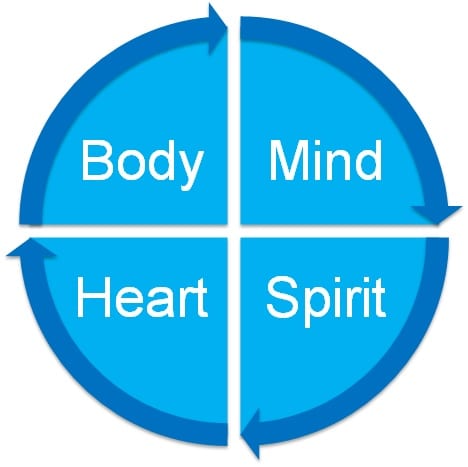Posted By: Ann Klinck, Communications and Marketing Assistant, ASHG
Earlier this month, ASHG hosted a webinar titled Resilience and Wellness, which focused on strategies to maintain your mental wellness in the scientific workplace and improve your resilience to the challenges and setbacks we all face.
- Learn more: watch the archived webinar
Sharon Milgram, PhD, Director of the Office of Intramural Training and Education (OITE) at the National Institutes of Health (NIH) reminded webinar listeners that to function at the highest capability, you must take your own well-being into consideration.
Developing Resilience
“Those who are resilient prepare to be resilient,” said Dr. Milgram. Developed through education, self-reflection, and practice, resilience can help a person navigate through adversity constructively. Here’s how:
- People: Find people you can trust, who will give you energy when you feel stuck, and go to them to find compassion, a listening ear, or just companionship.
- Process: Figure out what wellness practice or resources you can focus on that will help you in that moment.
- Prepare: You cannot try to discover these things in a moment of crisis; you have to set yourself up for success.
Dr. Milgram also provided this helpful tool to identify characteristics of a resilient person.
Handling Our Inner Critic
To improve the way you view difficult situations or setbacks, analyze your self-talk. Are the stories you tell yourself harsher than they need to be? Consider whether you would say the things you tell yourself to a friend. Are you seeing the broader picture?
Destroying Cognitive Distortions
Dr. Milgram described cognitive distortions or automatic negative thoughts as “Characteristic ways that our mind convinces us of something that is really not true to reinforce negative thinking or emotions.” Some examples are:
- All-or-nothing thinking: Your performance is either perfect or a complete failure.
- Catastrophizing: You exaggerate the implications of a setback or mistake.
- Mind reading: You make assumptions about what someone else is thinking.
Here’s how to tame them:
- Journal to identify your most common negative thoughts.
- Talk to mentors and peers.
- Use your science voice to question them: Where is the evidence that this is the worst thing to ever happen in my life?
- Be open to counseling when it’s unmanageable.
Never Feel Like an Imposter
Imposter fear is a type of cognitive distortion, qualified as “The feeling of phoniness in people who believe that they are not intelligent, capable, or creative despite evidence of high achievement.” Dr. Milgram pointed out that “If you are working towards a PhD in the sciences, if you are a postdoc, if you have been working as an undergraduate in a high-knowledge research environment, there is much evidence of high achievement already, though we often find ourselves feeling like fakes and phonies.”
Imposter fears include attributing success to luck or discounting your successes. You’re not alone! 70+% of individuals experience imposter fears at some point in their educational and work journey. Fight that feeling by practicing accepting praise and reminding yourself that impostor fears happen to everyone.
To Do Well, We Have to Be Well
Dr. Milgram provided a model of holistic self-care outlining four quadrants of wellness.

In her shared slide deck, you can find a wellness assessment for each quadrant. While everyone defines these quadrants differently, each needs to be fulfilled to feel well. Dr. Milgram reminded us we can’t fix everything at once, and to take time to work on one area instead of trying to change too many habits too quickly.
Watch the full webinar, or check out our Twitter account to see live engagement from listeners!
